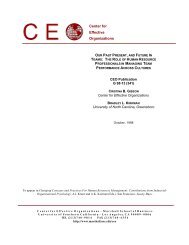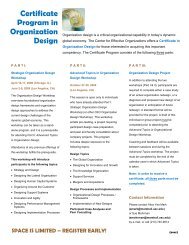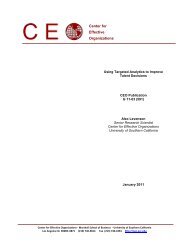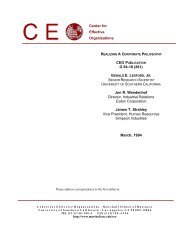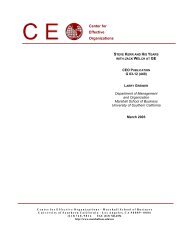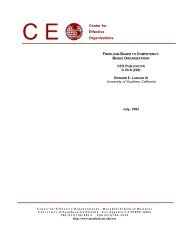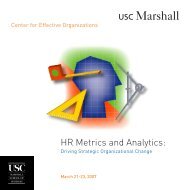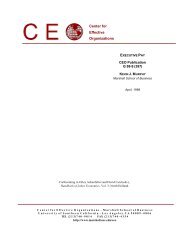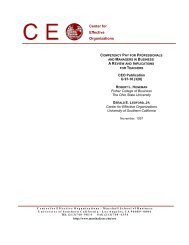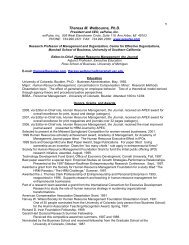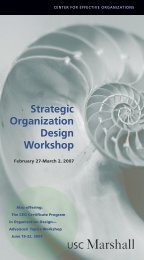Global Talent 2021 - Oxford Economics
Global Talent 2021 - Oxford Economics
Global Talent 2021 - Oxford Economics
- No tags were found...
You also want an ePaper? Increase the reach of your titles
YUMPU automatically turns print PDFs into web optimized ePapers that Google loves.
<strong>Global</strong> <strong>Talent</strong> <strong>2021</strong>How the new geography of talent will transform human resource strategiesThis transformation also requires a repositioning of employee skill sets, across alllevels of employment. Our study identified four broad areas where skills will be ingreatest demand. These include:1. Digital skills. The fast-growing digital economy is increasing the demand for highlyskilled technical workers. In particular, the emergence of social media is puttinga premium on developing new forms of digital expression and marketing literacy.According to our survey, of all technical capabilities, digital business skills are seenas most critical—particularly in Asia-Pacific, where e-commerce is mushroomingbecause of the early adoption of new digital technology as way to “leapfrog” aninefficient legacy infrastructure. In Europe, where economic conditions are weaker,the use of business software and systems to build internal efficiencies will continueto be a high priority.2. Agile thinking. In a period of sustained uncertainty, where economic, politicaland market conditions can change suddenly, agile thinking and the ability toprepare for multiple scenarios is vital. In industries that face significant regulatoryand environmental cross-currents, such as life sciences, and energy and mining,the ability to prepare for multiple scenarios is especially important—72% and 71%respectively, compared with 55% for the overall pool of respondents. To succeed inthe changing marketplace of the future, HR executives also put a high premium oninnovative thinking, dealing with complexity and managing paradoxes.Figure 3: Skills in high demand over the next five to 10 yearsDigital skillsDigital businessskillsAbility to workvirtuallyUnderstandingof corporate ITsoftware andsystemsDigital designskillsAbility to usesocial media and“Web 2.0”50.6% 44.9% 40.1% 35.2% 29.3%Agile thinking skillsAbility toManagingconsiderDealing withparadoxes, Ability to see theand prepare Innovation complexity andbalancing “big picture”for multipleambiguityopposing viewsscenarios54.8% 46.0% 42.9% 40.9% 15.3%Interpersonal and communication skillsCo-creativity andbrainstormingRelationshipbuilding (withcustomers)Teaming(including virtualteaming)CollaborationOral and writtencommunication48.3% 47.4% 44.9% 30.4% 29.0%<strong>Global</strong> operating skillsAbility tomanage diverseemployeesUnderstandinginternationalmarketsAbility to workin multipleoverseaslocationsForeignlanguage skillsCulturalsensitivity49.1% 45.7% 37.5% 36.1% 31.5%Source: <strong>Oxford</strong> <strong>Economics</strong>5OXFORD ECONOMICS



